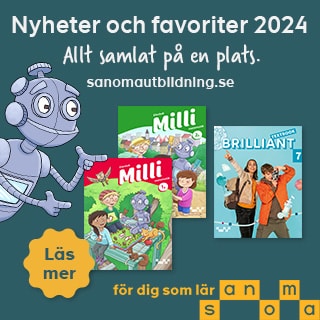Simulated "real" worlds: Actions mediated through computer game play in science education
Elisabet M. Nilsson
Gunilla Svingby, Anders Jakobsson
Professor emeritus Per Lauvås
MaH – Malmö högskola
2010-05-21
Simulated ”real” worlds: Actions mediated through computer game play in science education
Abstrakt
Avhandlingen undersöker varför, hur och om datorspel kan spela en roll i skolan och för undervisning i naturvetenskap. Studien tar avstamp i tidigare påstådda pedagogiska potentialer med datorspelande och för samman teorier från aktuell spelforskning med NV-didaktisk forskning. Sociokulturella teorier och antaganden om lärande ligger till grund för det analytiska arbetet och skapar också en bakgrund till varför det är relevant för oss att titta på datorspelandet som aktivitet i förhållande till skolan. Tre empiriska studier har genomförts där totalt 89 högstadieelever spelar Agent O som är ett GPS-baserat augmented reality-spel samt det kommersiella stadssimuleringsspelet SimCity 4. Resultaten som presenteras lyfter fram en rad olika exempel där datorspel kan stötta lärande i naturvetenskap men för att detta skall komma till stånd spelar pedagogen en viktig roll. Datorspelande är i sin natur en aktivitet som kan ta många olika riktningar. För att nå det tänka målet med spelandet krävs det att läraren träder in och hjälper eleverna att lyfta fram relevant innehåll och reflektera kring spelprocessen.
Simulated ”real” worlds: Actions mediated through computer game play in science education
Over the last decade, a great variety of visionary ideas and beliefs have been brought forward, regarding the potentials of using computer games as a tool for learning and mediation in educational settings. This thesis aims at contributing to research in this field, by empirically exploring what happens when students play and reflect on their computer game play in science education. Three empirical studies and a research review have been conducted. The first study was part of a design-based research project on mobile learning, and involved 17 students (aged 15 16) playing the mobile educational game Agent O. The two following studies involved 72 students (aged 13 15) playing the COTS game SimCity 4, in connection with the annual Swedish school competition Future City. Research questions aimed at clarifying, in a science learning context, what aspects of scientific practice are: (1) mediated through computer game play; (2) used and referred to by students, when reflecting upon their actions during computer game play. This work is not about science education. Instead, it studies actions mediated by computer games, and possible implications for science education. The focus is on mediated actions that occur during computer game play and their potential relevance to school science learning. Two tendencies are important as a background to the thesis. Firstly, the rapidly increased use of digital media among young people. Secondly, the challenge digital media pose for education, generally, and in this case science education, more particularly. The results suggest a number of ways in which computer game play can play a role in science education. Findings show that computer games may provide platforms for engagement in scientific practice, support authentic experiences, and constructively constrain students actions, by confronting them with simulated complexities. Computer game play is an activity of great variation, that can take many directions, and outcomes may therefore correspond to teachers expectations in some cases, while leading to quite different outcomes in others. It is noteworthy that during game play the students in these studies were primarily playing a game, not simulating a real world situation. They did not relate to occurrences outside the game world, unless they were specifically instructed to do so. Conclusions further indicate that instruction is a crucial factor, to benefit from potentials of computer game play in educational settings.
Relaterade länkar

Undervisa i artificiell intelligens
 Gy–Vux
Gy–Vux 







